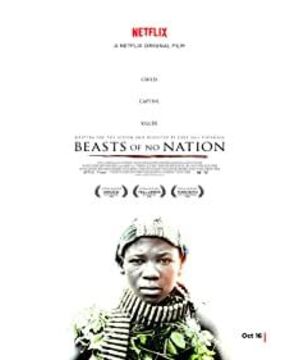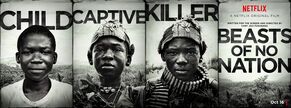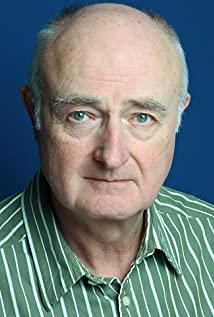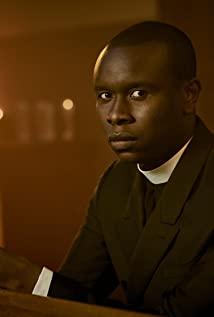There are two things that impressed me the most after watching. One is the first time Agu murdered. Agu refused to kill with fear from the beginning. In order to get him to do it, the commander continued to persuade him by the side, repeating the killing of his father over and over again. Use hatred to control Agu's sanity. Agu was just a picked-up soldier to the commander. What he said should have been said to other people. He used hatred to unite them together, and then said that we are a family and we are avenging our family. But he didn't treat them as family members at all, beating, scolding, and humiliating. These are common things. If they threaten his rights, they can only die. Just like 2IC, he clearly knows the character of the commander. He is a profit-seeking person. The ideals, beliefs and justice in his mouth are all rhetoric and used to deceive others. From the commander to expose the process of beautifying war, just war, brutal murderers may be a struggle for interests.
The second is the last departure of Agu. The commander's eyes from surprise to loneliness, he miscalculated people's hearts. He thought Agu was just a child. He had never thought of war for Agu to grow up. He became a desolate heart in a short time. People, longing to be able to return to peace. Killing 2IC for the right not only made him opposed to the original leader, but also changed his image in the minds of his subordinates. Agu believed in their justice, he believed in brainwashing words, but when he saw the commander’s selfishness, he dragged him into Endless war, finally disgusted. For the commander, Agu should hate more than admiration, after all, the commander used to treat him like that.
Hercules, he is the most typical of the children's army, a Gu without the protagonist's halo. The war destroyed his homeland and was incorporated by the commander. He had experienced everything that Agu experienced. He retained the innocence of his child and was willing to help Agu, give him clothes, and play games with him. He had no choice in the war. No matter what the commander decided to do, he had no choice but to obey. This was an ordinary soldier. In the end, he died in battle and no one buried his body. This is the life of an African young soldier, and the reality is tragic. There is no hope and no halo. The most touching thing in the film is that he wanted to remind Commander Agu’s room, reminding Agu that he would be punished by the commander, but he still reminded Agu, but Agu didn’t understand what he meant.
View more about Beasts of No Nation reviews











